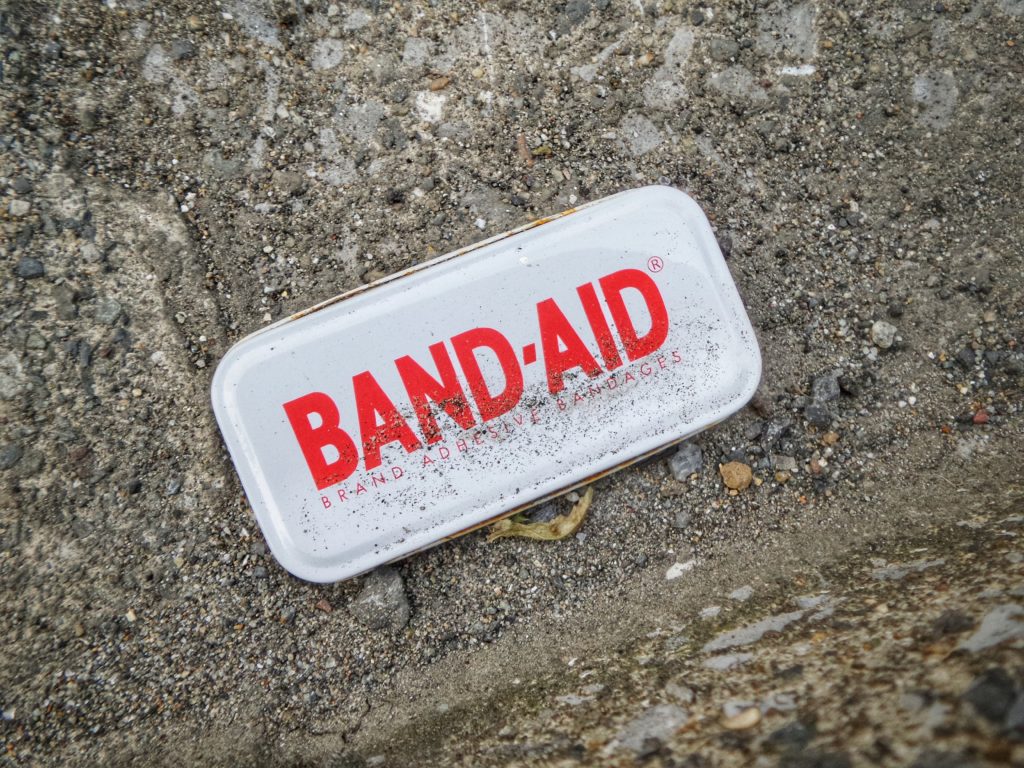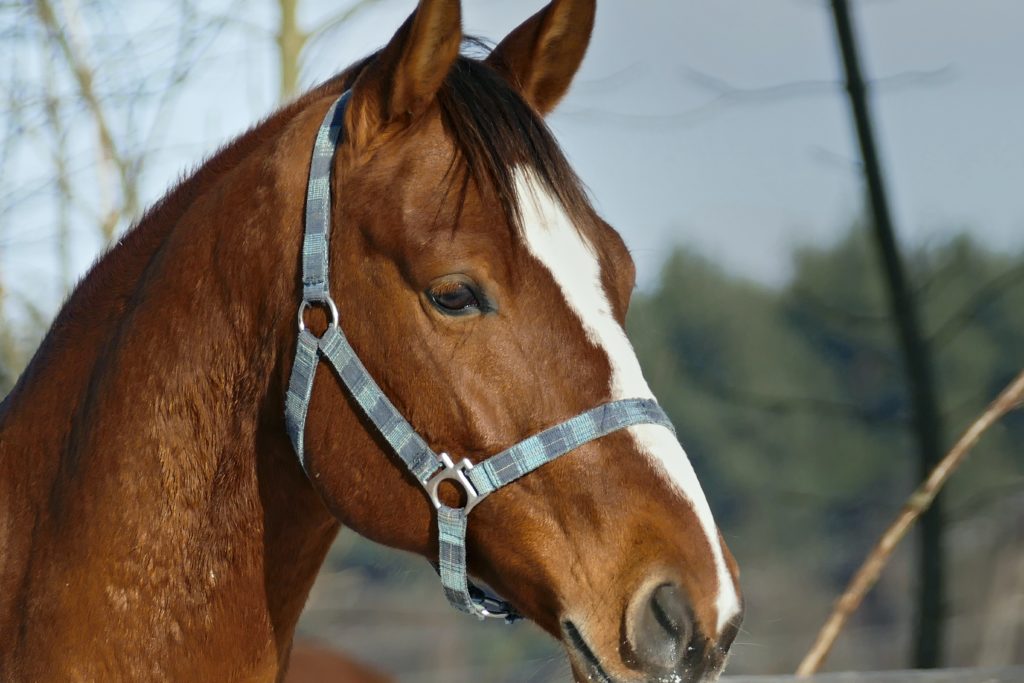Equestrians are not generally known for their enthusiasm for bookkeeping and legal matters. After all, most of us prefer mucking stalls to cleaning our houses. Drawing up a contract isn’t our idea of fun! However, as in any business—and especially ones that involve safety concerns—a horse business is governed by certain rules and regulations. Even amateur horse owners need to be aware of the legal do’s and don’t‘s of the industry.
I was very fortunate to have the pleasure of speaking with Yvonne Ocrant, an attorney who specializes in Equine Law at Hinshaw & Culbertson LLP. One of the issues we discussed was the tendency of people to forget or simply overlook the importance of putting agreements in writing—whether they be shipping contracts or short-term leases—especially if they are between friends. Yvonne stressed that it is so important to write down the terms of any agreement to avoid problems down the line.
 Photo by Scott Graham/Unsplash/CC.
Photo by Scott Graham/Unsplash/CC.
Below are some common legal questions that horse owners like you and me face, on topics ranging from sales and lease contracts to working student arrangements. This is not legal advice, but rather a set of tips for various situations horse owners and riders may run into. Many thanks to Yvonne for her time and expertise.
1. Are there any special additions that should go into my sales contracts because COVID-19 is going on? For example, what if the buyer gets sick and wants to give the horse back?
My recommended sales contract terms are not specific to the COVID-19 era, but they do cover a situation where the buyer attempts to return the horse for personal reasons. The sales contract should specifically state the horse is purchased as-is, without any express or implied warranties, and the sale is final without reimbursement of the purchase payment for any reason.
2. I am thinking about leasing out my horse. He’s expensive. What are some precautions I should take? Should these differ based on the sport (show jumping, eventing, dressage) or the level (1.0m jumpers vs. grand prix level)?
The terms I recommend for a horse lease agreement when representing the owner of the horse include provisions that are important to my client regarding the horse and necessary to provide my client with liability protection. The terms do not differ based on the sport except with regard to restriction for the use of the horse.
For example, for a jumper, the lease may include that the horse may not school or compete over fences more than 3 days per week, at heights that should not exceed 3’9”, and should not compete in more than 2 classes per day or 6 classes per week. Regardless of the discipline, the horse must be ridden in protective front and hind boots and bell boots and must be turned out in bell boots, fly mask, and fly sheet. The horse must be transported in shipping wraps and shall not transport for longer than 8 hours without off-loading for 8 hours to rest. The lease would also include who the treating veterinarian can or should be, that the owner must be notified in the event the horse needs medical attention (other than routine maintenance) for prior approval, and any maintenance (Adequan/Legend/chiropractic work) should be listed and provided at Lessee’s cost. The owner should be released and held-harmless from liability from injury or damage to third-parties or property.
3. My friend is a better rider than me and I think she would have so much fun jumping my horse. Is that OK?
Sure, but anyone riding your horse should sign a carefully drafted liability release. The ones I draft are one page and are drafted to be signed by anyone who rides your horse regardless of whether they are an amateur, professional, beginner, expert, and regardless of the discipline or location.
4. My friend asked me to flat her horse once a week for free. He tripped and is now kind of sore. I didn’t tell her yet because she won’t be at the barn for another couple of days. I’m afraid she’ll blame me, but it was an accident. Who is responsible?
This depends on a number of factors. Was any agreement, like a liability release or training agreement signed that dictates who is responsible? If not, the rider is likely not liable unless she did something negligent, reckless, or without permission.
 Photo by Franck V/Unsplash/CC.
Photo by Franck V/Unsplash/CC.
5. I’m thinking of starting to teach lessons, but teaching insurance is really expensive (especially because I’m only teaching on the side). Do I have to get the insurance?
You only need to get insurance if you want it to protect you in the event of a claim. Although the insurance may seem expensive, the costs of not having it may be much greater if something goes wrong and you are found responsible. However, you should also check with the facilities at which you teach, because the property itself may have insurance that covers you.
6. My friend’s client wants to try my horse for a few days. She lives just down the road, so I said I could drop him off for her. Is there anything I should do before giving him to her to try, even if it’s just a couple of days?
I would recommend a “Lease Agreement” or “Horse Trial Agreement” which is similar to the lease agreement described above. It limits what can be done and not done with the horse and releases the owner from liability in the event the horse injures someone or damages property during the trial period. It also defines who is responsible if the horse is injured while in the trial rider’s care during the trial period.
 Photo by Zibik/Unsplash/CC.
Photo by Zibik/Unsplash/CC.
7. A month after I bought a horse, he started showing signs of a rare condition that’s making him sick and requires expensive medication to treat. The previous owner didn’t tell me about it, and when I asked her, she said she had no idea he had it. Do I have any recourse?
It depends on the terms of the purchase agreement, what was represented to you by the seller regarding the horse, and whether the seller knew or should have known about the condition and failed to disclose it. These points can be difficult to prove if there is no written agreement, the representations are not in writing, and there is no proof the seller knew or should have known of the condition. If these points can be proven, you may have the right to recover the purchase price and return the horse, but these are typically very challenging cases.
8. I’m a working student for a top professional. Some weeks I get lessons, but other times I go for weeks without getting any instruction. When we talked initially, my boss said I’d get at least two lessons a week. What should I do?
These types of agreements should always be in writing so there is no disagreement later regarding what was promised. If there is no agreement, you should talk to the trainer now and agree on terms that are put in writing and signed by both of you. If the trainer is not willing to do so, it is not the right place to work. These issues of working students vs. independent contractor vs. employee, such that employment laws would apply, are very detailed and require further analysis on a case-by-case basis.
Questions? Contact Yvonne Ocrant with any specific queries at yocrant@hinshawlaw.com or +1 (312) 704-3080.
